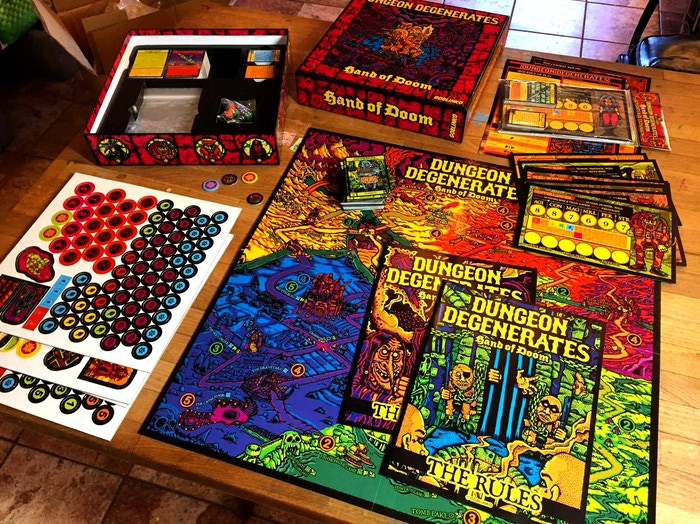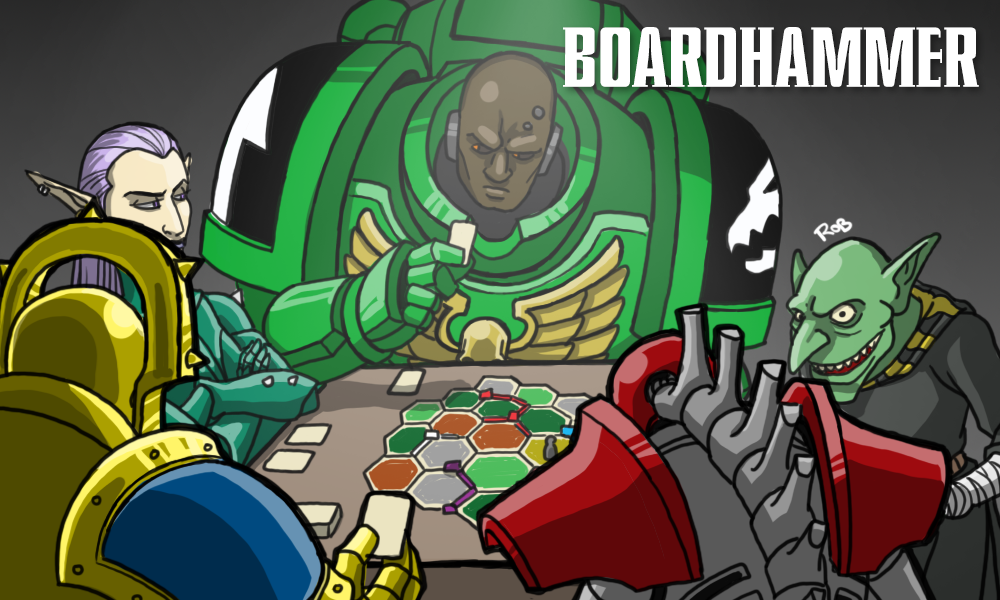In last week’s gift guide we mentioned a few games that could be played via webcam. As game nights have shifted, so have the ways we game. While not quite the same as playing together, hopping on Zoom, Meet, Teams, or whatever can help fill the game sized hole in our hearts.
Almost every game is available via official (and unofficial) implementations on sites like Board Game Arena and Tabletop Simulator.Similarly, almost any game could be rigged up to play remotely depending on how much effort you’re willing to put into it. However, today we’re focusing on games that play easily via a telecon.
You may notice that in some instances the technicalities of playing via webcam allow players to “cheat” or gain an advantage. If this is a concern, we recommend playing with people who won’t try to cheat at what is supposed to be good lighthearted fun. We got enough shit in our lives these days.
Among Us
Kenji
Ok so hear me out. Yes, this is a video game. But frankly Among Us is perhaps the best implementation of a hidden role/social deduction game I’ve ever played, and that’s putting it in league with games like Werewolf, Mafia, Menace Among Us, Secret Hitler, and the “controversial” Blood on the Clocktower. Of all of these, I’d probably only ever play Menace Among Us ever again, but Among Us? I could play that all day. If you get a group of friends together, open a discord call, and just go to town, this game is a blast. The thing that makes Among Us work where other Social Deduction games falter is twofold: dead players, even dead killers, can still act on the game. Second is that rounds rarely last 15 minutes, making Among Us games blessedly short in a genre that can otherwise take interminable hours to play even one or two rounds of. I’ve never had a player get angry at a game of Among Us, something I cannot say with any other social deduction game, so even though you need an Android device or PC to play it on, this is a no-brainer if you’re looking to spice up your social deduction options and are tired of Zoom Werewolf.
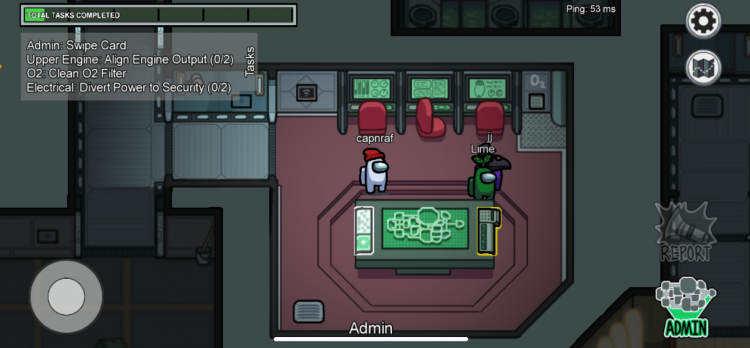
Just One
Raf
Just One is a popular word guessing party game. There is a mystery word that must be guessed by the lead player and the only clue they get is a single word from each other player. Those players have to write down a one-word clue, compare them with each other, and eliminate any duplicates before sharing what remains with the lead player.. This creates some fun tension as you figure out which clues might be just obvious enough to be helpful, but not obvious enough to overlap with someone else.
To play via webcam, every player will need something to write on and with (paper and pen, whiteboard and marker, etc) and one player will need a copy of the game. That player will be responsible for displaying the Mystery Word card to the group while the Lead Player closes their eyes. Once everyone is keyed in on the word, the card can be put down while everyone figures out their clues. Another moment of eyes closed for the Lead Player while words are compared and you’re good to go!
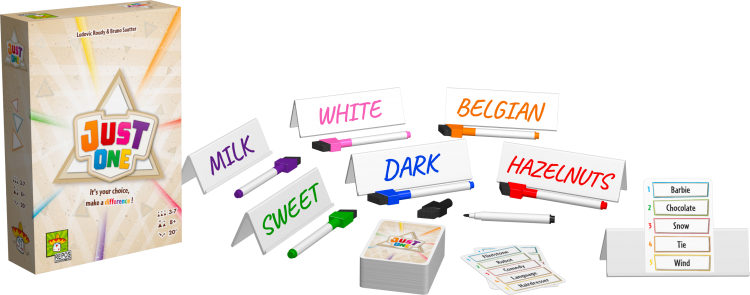
Tattoo Stories
Raf
Tattoo Stories is my favorite party game of the year (and last year and at least 2 other years before that). You can check out our full review here, but the core idea is that all players but 1 are attempting to draw a tattoo that incorporates 5 elements chosen by the Customer. They’re drawn Apples-to-Apples style from a deck of random cards; the opportunity for hilarity and Awful Ink is high.
Again everyone will need something to write/draw on. In the physical copy, the Customer draws 10 cards from a deck and picks 5 cards to form the tattoo. This is a little trickier to do remotely. You can have the game owner show the Customer 10 cards drawn from the deck while everyone closes their eyes; you can tell some care was taken to choose tattoo-y items when creating the deck. However, if that is too clunky you can always use a word generator website. I recommend restricting the generator to words of less than 7 letters, and randomly generating 12-15 words to give you a more fun pool of options.
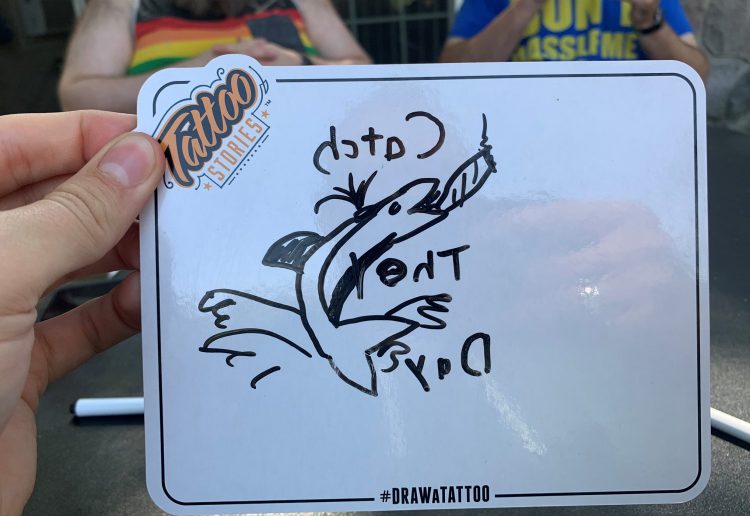
Tak
Pendulin
Somewhere between checkers, chess, and connect four, Tak is a great gift for a couple reasons. It’s a genuinely interesting game that you can learn in a couple minutes, yet has a surprising amount of depth to it. You and your opponent each take turns placing or moving stones on a board, attempting to create an uninterrupted line from one side to the other. You block your opponent, they adjust their line to counter, you place a stone in an unexpected location and they have to give up their counter, you turn your block into an attack and you’ve just won. The game is fast, fun, easy to teach, and comes in at different price points: you can either buy an official set for around $50, or drop hundreds on a gorgeous handcrafted set on Etsy.
Editors note: Tak can even be played without a board, using bits you scavenge from home. You need 2 different sets of pieces that can stand on edge, and 2 markers to act as “Super” pieces. The official instructions for Tak describe how to play without a board, and it’s very easy. I have a travel tak set that is made up of playing pieces and a small metal coin that acts as the center space. As it’s designed to mimic a fantasy tavern game, its portability serves it well remotely.
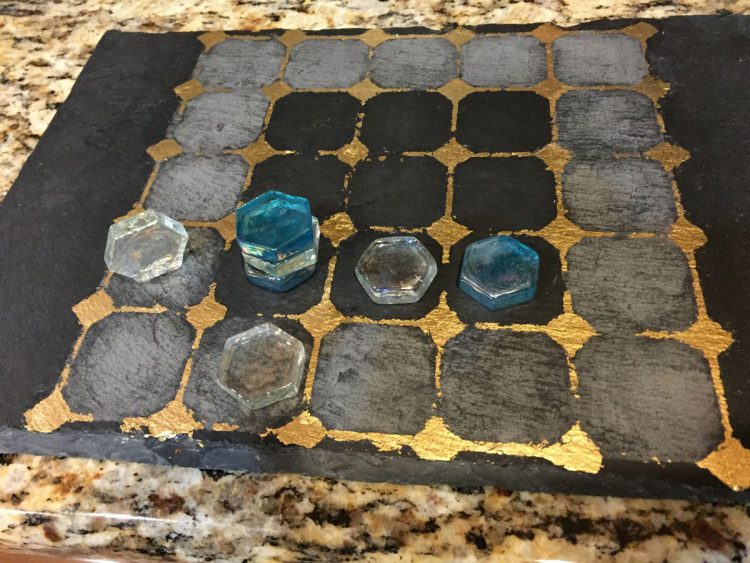
Codenames
Raf
Remember how I said Tattoo Stories was my favorite party game of the last few years? Codenames is the game it dethroned. In Codenames, two opposing Spymasters are trying to get their team to guess a specific set of operative codenames (words) from a grid. First team to guess all their Codenames wins, but if anyone guesses the Assassin word then its an automatic loss. Codenames is great because you’re trying to find ways to signal multiple words with a single clue, while excluding other words. You can’t say “Animal” for “Dog” and “Cat” because “Bear” might be the assassin word, but would your team understand what to guess if you said “Raining’?
One of the great things about Codenames is that the same clues rarely work for the same words. This is because which cards in the grid apply to each team changes based on the card you draw and the orientation its displayed; you can keep the grid of words identical and draw a new card and suddenly find yourself having to come up with completely new clues; now you need something to signal “Cat” while “Bear” and “Dog” belong to the opposing team.
There are quite a few versions of Codenames (including an official online implementation) but if you want to stick with the analog version, I recommend busting out your smartphone. One player will arrange the grid and text a picture to everyone. Then they can draw the card that indicates which words belong to which team and text that to the Spymasters. This works best if the game owner is always the Spymaster. Alternatively, Facetime (or equivalent) just the spymasters and use your phone as a camera to let them see the grid card in secret.

Horrified
Kenji
I’ve written before of my love for Horrified, and for the price and accessibility (the game is available in most Targets and routinely can cost under its MSRP of 30 dollars) you get a very fun twist on the Pandemic style of game using Universal movie monsters instead. A purely co-op game, the difficulty can be tweaked by increasing or decreasing the amount of monsters on the table. Like Pandemic, this game doesn’t have a whole lot of “moving parts”, and since there is no hidden information, a Game Master of sorts could easily move the monsters, players, and village people quite easily. Much of the decision making is where players will go and what they’ll do with their limited actions each turn, but this doesn’t translate to a lot of actual “board” management per player, so someone with a good top-down camera could easily pilot the players around the board and still keep things fun and thematic. Also, in lieu of playing an actual Pandemic game, I think Horrified is far more interesting and fun, unless you’re talking Pandemic Legacy, which is a little harder to play long distance, but if you do want another rec in this vein, Pandemic: Cthulhu is a nice one that works well long distance, and is self-contained.
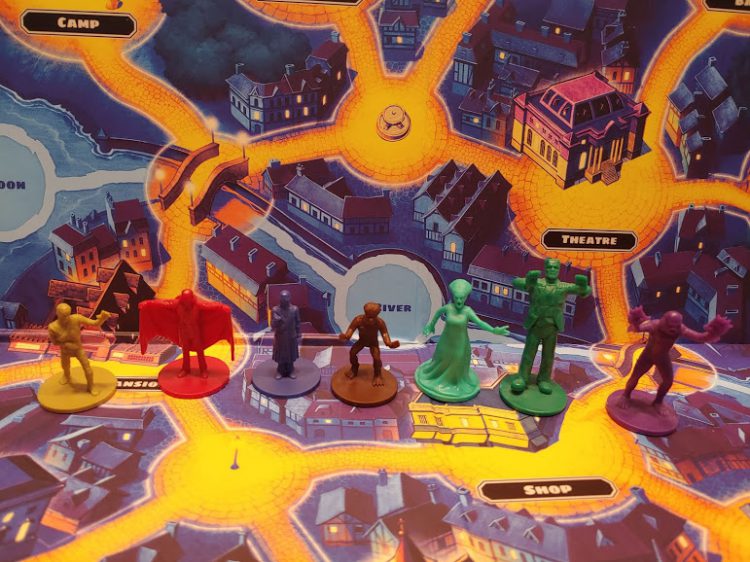
Too Many Bones
Kenji
I’ve written about TMB quite a bit on here (and promise this is the last time), and my review and suggestion in the gift guide sing the praises of this game enough, but the actual benefit for a “play by distance” method is that TMB doesn’t require a lot of individual management. Like many co-op games, there is no hidden information, and as long as the players can easily see their character mats, it would be quite simple for a single player to roll the dice when needed while allowing other players to make the decisions for their characters. TMB is already very good solo and even solo piloting more than one character, so it falls mostly to camera management and communication, but this game works very well, especially as a good, meaty game for a duo to play over a call. While the battles are the big “action” part of the game, a big portion of TMB is about discussing the choices you’ll make on a given day’s card, strategy planning, and then swapping loot and items, meaning that there is a ton of things to be accomplished without really needing to “do” much on the game itself.
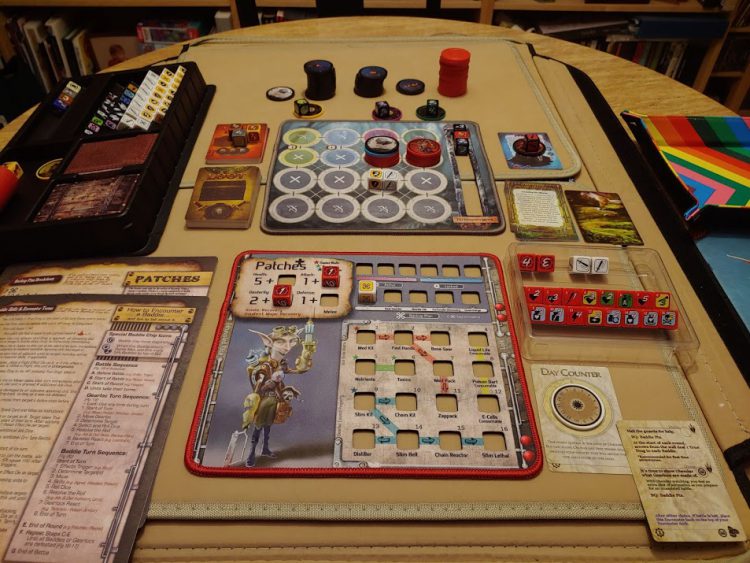
Dungeon Degenerates
Kenji
Like TMB, Dungeon Degenerates is a fairly large game, and frankly if you look at the game and go ‘oh I don’t like that’, you can just skip this one. The art on DD is, in a word, polarizing, featuring garish neon colors and a comedic dark fantasy aesthetic that you either fall in love with at first sight, or hate immediately. I’ll do a full review of the game at a later date, but if you and your play partner(s) think you’d dig this old school RPG as a tabletop board game, then you will find a lot to love in this box. The game unfolds over a semi-scenario basis, but each mission has multiple potential endings and ways of progressing through it that help you get more bang for your buck on replay. The reason this one and TMB work in ways that games like Gloomhaven don’t, in my opinion, is that there is no hidden information and nothing that players need to hide from one another, but there’s also no complex hand and deck management either. Your degenerate of choice has a character card that tracks all their stats and items. My one knock against this game for Zoom, though, is that this game is VERY fiddly. Lots of tokens, lots of things to put on the board, so whoever is going to be the game runner needs to know this going in, but you can have a great time here.
